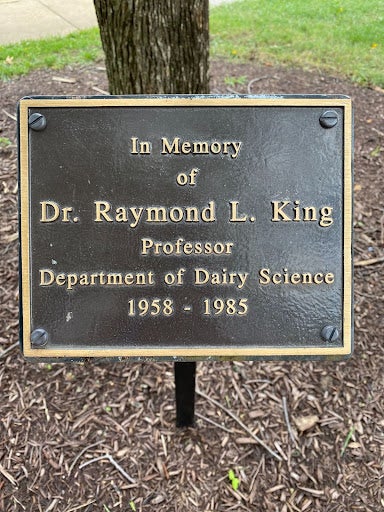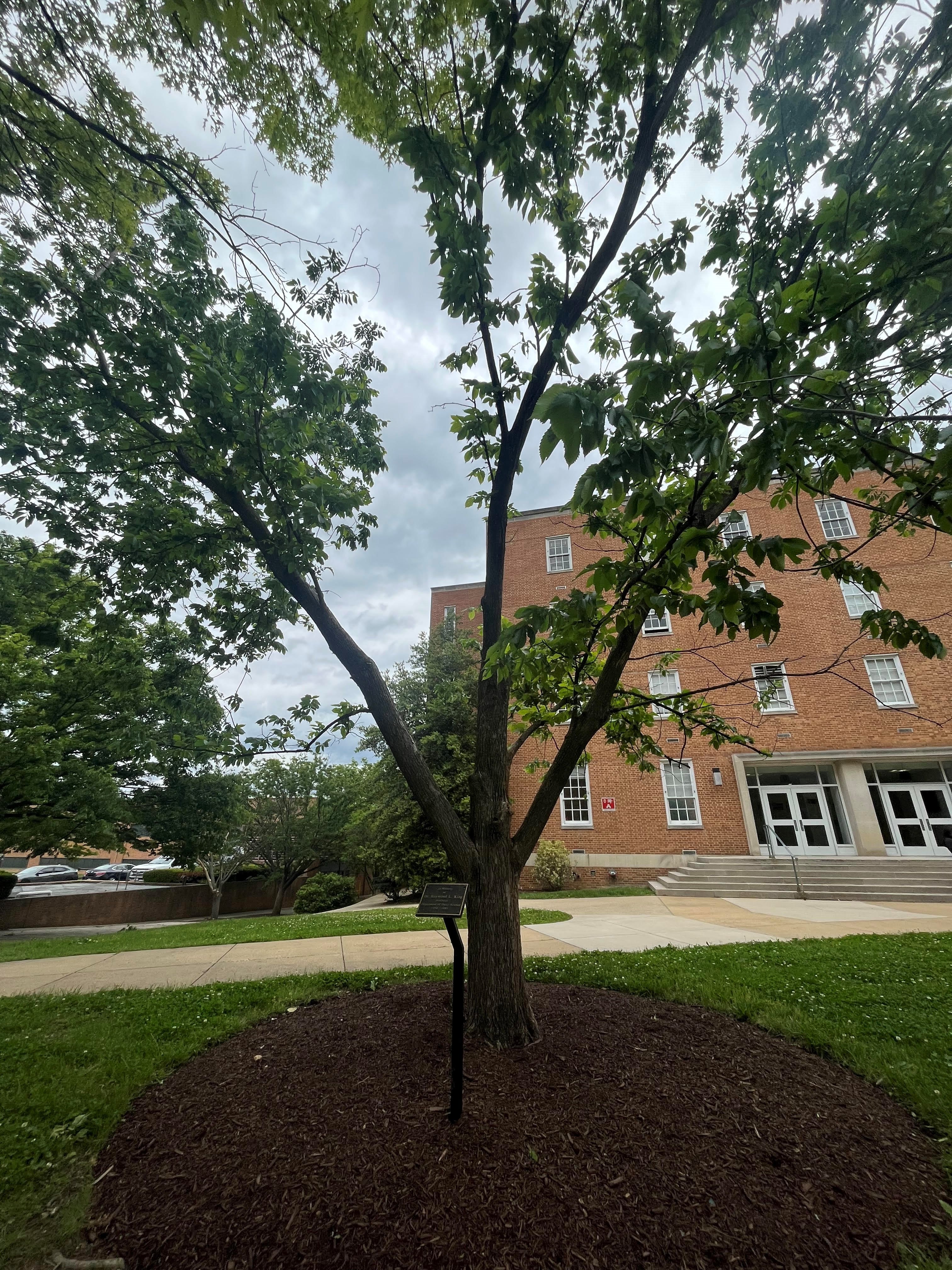King, Raymond L.
About Dr. Raymond King
Dr. Raymond L. King was a dairy chemist who served as a professor of Dairy Science and food chemistry and was the food science program coordinator at the University of Maryland from 1958 until his retirement in 1985. Dr. King was also an advisor for graduate students pursuing a career in the dairy field. He contributed his work to testing the insecticide DDT in Maryland's natural environments in the early 60s. He also wrote a report in 1969 about milk called “Flavors and Their Precursors in Milk Derived from Pasture and Dry Feeding Practices”. Dr. King helped the department to receive a $75,000 grant from the U.S. Department of Agriculture to study the different factors that can affect the flavor of milk. Through his work with dairy cows, he was able to conclude that a vitamin E deficiency in cows that were not on pasture was a main reason as to why their milk had an oxidized flavor.
Sources:
https://www.newspapers.com/clip/120106289/professor-raymond-l-king-studies-what/

About the American Elm
The American elm, Ulmus americana, is a well-loved tree for its graceful and stately shape as well as its golden fall color.1 This tree is native to Eastern North America and can grow to a height of 60-80 feet and a width of 40-70 feet. The American elm is generally tolerant of urban conditions. This tree is adaptable to wet and dry sites but prefers rich, moist, loamy soils. The leaves of this tree are ovate-elliptic, rough textured, dark green with doubly-serrated margins and asymmetrical bases. The flowers are small and green, and give way to single-seeded samaras.2 In the 19th century, this tree was the most popular tree to plant, but unfortunately was devastated by Dutch Elm Disease when the disease was introduced to the United States in the 1950s.1 There are a few cultivars that may offer a range of disease resistance to Dutch Elm Disease, such as ‘Valley Forge’.2
1. https://mortonarb.org/plant-and-protect/trees-and-plants/american-elm/
2. https://www.missouribotanicalgarden.org/PlantFinder/PlantFinderDetails.aspx?kempercode=a922

